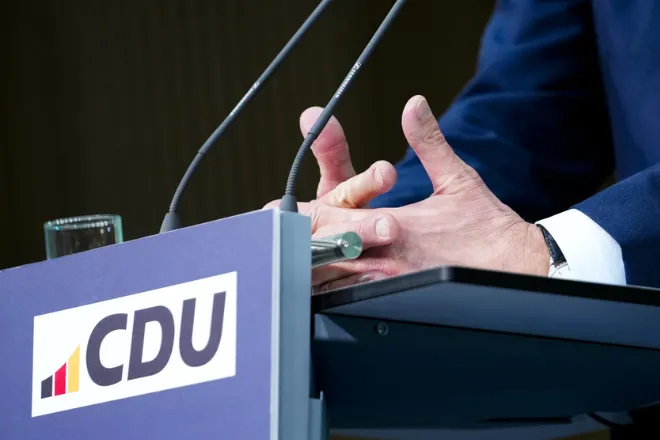The new German government led by Chancellor Friedrich Merz is under intense pressure to fulfill campaign promises and revitalize Europe’s largest economy, according to prominent business leaders gathered at a recent summit in Bavaria.
Contents
- 1 Business Leaders Challenge New German Government to Act Quickly
- 2 German Government Inherits Economic Stagnation Despite Market Optimism
- 3 Industry Leaders Express Cautious Hope in New German Government
- 4 German Government Faces Clear Demands from Business Community
- 5 What Business Leaders Want from the German Government
- 6 German Government at a Crossroads
- 7 About H2T Finance
Business Leaders Challenge New German Government to Act Quickly
At what many call the “Davos of Germany,” top executives, economists, and politicians gathered by Lake Tegernsee with a unified message: the government must quickly implement concrete economic reforms. Many industry leaders warned bluntly that the government cannot afford a “lazy summer” and must tackle key economic challenges immediately.
“This new German government cannot allow itself a political lazy summer. They’ve got to work and they’ve got to work hard,” stressed Karl-Theodor zu Guttenberg, chairman of Spitzberg Partners and a former German politician.

German Government Inherits Economic Stagnation Despite Market Optimism
Although Germany’s DAX index has risen more than 18% since January and has been setting new records, the underlying economic situation remains worrying. The German government now faces an economy that has been stagnant for more than two years, with Economy Minister Katherina Reiche acknowledging the gravity of the situation.
“This country needs an economic turnaround. After two years of recessions, the previous government had to announce again zero growth year for 2025, and we really have to work on this,” Reiche told reporters at the summit.
Industry Leaders Express Cautious Hope in New German Government
Despite previous political turmoil and ongoing economic challenges, many business leaders expressed optimism about the new administration’s potential:
- Patrick Trutwein, Chief Risk Officer at IKB Deutsche Industriebank AG, cited positive feelings about Germany’s future considering “the announcement of the major fiscal package enshrined in Germany’s constitution”.
- Matthias Voelkel, CEO of Boerse Stuttgart Group, stated: “If we look ahead and if they [the German government] do the right thing, I’m optimistic”.
- Audi CEO Gernot Döllner expressed hope that the new government would “send an impulse into the German economy”.
- Hildegard Müller, president of the German Association of the Automotive Industry, confidently declared: “The Germans are back. We are competitive”.
German Government Faces Clear Demands from Business Community
The business leaders’ message to the German government was unmistakable: implement promised reforms quickly or face consequences. Alexander Horn, general manager of Eli Lilly’s Germany arm, stated that while his business strongly welcomes the new government’s goals, they “won’t tolerate any caveats.”
“Specifically we expect that the declarations of intent that are in the coalition agreement will be implemented quickly; speed plays an enormously big role,” Horn emphasized.
See more related articles: Trumps global tariffs legal challenge
What Business Leaders Want from the German Government
The business community outlined specific priorities for the German government to address:
- Major simplification of bureaucratic processes.
- Elimination of rules that restrict economic expansion.
- Enhanced support for innovation.
- Improved conditions for investment.
- Rapid rollout of economic reform measures.

These priorities are in line with the election pledges of the new government coalition, which included boosting growth, reducing administrative barriers and encouraging innovation in key German industries.
German Government at a Crossroads
With high expectations and equally high stakes, the new German government finds itself at a pivotal moment. As Veronika Grimm, member of the German Council of Economic Experts, succinctly summarized: “A lot lies ahead for the government.”
The coming months will be crucial in determining whether Chancellor Merz’s government can deliver the economic revival that businesses – and the German people as a whole – are hoping for.
